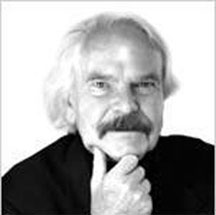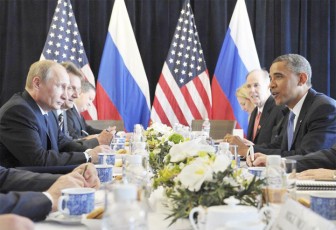By Bernd Debusmann
The 2012 global performance scorecard is in and the grade for Barack Obama is “failed to meet expectations.”

To varying degrees, that’s the view in each and every of 20 foreign countries — some close US allies, some not – whose citizens were polled for the Pew Global Attitudes Project, a widely-respected survey that has tracked the standing of the United States, its president, and assorted foreign leaders every year for the past decade. The Washington-based Pew Research Center polled more than 26,000 people.
Though views of Obama are not as rosy as they were in 2009, when he took office after a campaign that promised “hope and change,” the US president’s star is still shining so bright in 11 countries that sizeable majorities in seven and pluralities in another four would like to see him re-elected for a second term in November.
So where did Obama fall short of expectations so high that he was awarded the Nobel Peace Prize just nine months into office?
A comparison of the 2009 and 2012 Pew surveys provides answers: In 2009, millions around the world thought the president was intent on making a decisive break with the policies of his predecessor, George W Bush, whose penchant for unilateral actions made him deeply unpopular in large parts of the world.
Obama was expected to open a new chapter of multilateralism, take a fair approach on the Israeli-Palestinian conflict, and energetically push policies addressing climate change. His soaring pre-election rhetoric obviously raised expectations to lofty levels, both abroad and at home; for example, his assertion in the summer of 2008, that his nomination as the presidential candidate of the Democratic Party would be remembered as “the moment when the rise of the oceans began to slow and our planet began to heal.”

As for the rising oceans and the healing earth, the 2012 Pew survey reports that 56 per cent of those polled in 2009 expected Obama “to take significant steps to deal with climate change.
Today, a median of just 22 per cent think he has actually done this.” There are similar declines in expectations on other key issues. In 2009, 45 per cent of those surveyed thought Obama would seek international approval for the use of military force. Now, 29 per cent say he failed to do so.
“While many around the world still have a positive image of Obama,” wrote the authors of the Pew report, “he has nonetheless failed to meet expectations on specific policies. For instance, in 2009, many public anticipated that the U.S. leader would consider their country’s interests when making foreign policy decisions. Today, relatively few believe Obama has done either.”
Militarily aggressive leader
Part of the reason for that view is the ever-increasing use of drones to kill adversaries in countries such as Pakistan, Somalia, Afghanistan and Yemen. Dealing high-tech death from above, without risking American lives, has become Obama’s favourite kind of warfare. He has embraced it much more enthusiastically than Bush, part of a gradual transformation into “one of the most militarily aggressive American leaders in decades,” in the words ofPeter Bergen, a national security expert at the New American Foundation, a liberal think tank.
Drone strikes are popular in the United States (62 per cent in favor) and unpopular everywhere else, even in countries whose citizens want to see him re-elected and even in countries where his 2009 rock-star image has not been significantly dented.
In Germany, for example, he outshines the popular chancellor, Angela Merkel. Eighty-seven per cent expressed confidence in “Obama to do the right thing in world affairs.” Merkel polled 77 per cent on that question.
The confidence to do the right thing does not extend to drone warfare. Almost two out of three Germans disapprove of it.
At home, Obama’s job approval never reached the heights it did in much of Western Europe. A Gallup poll taken in his first week of office gave him 69 per cent approval. This month, it stood at 47 percent, two percentage points lower than Bush at the same point in the election cycle in 2004. Bush won, by the slimmest of margins.
All of which probably shows that the way an American president is seen abroad makes no difference to his electoral fortunes at home.
World Affairs columnist Bernd Debusmann has reported from close to 100 countries, on stories from the Soviet invasion of Czechoslovakia and the seizure of American hostages in Iran to Lebanon’s descent into anarchy and the withdrawal of Soviet forces from Afghanistan. Debusmann was shot twice in the course of his work — once covering a night battle in the center of Beirut and once in an assassination attempt prompted by his reporting. Any opinions expressed here are the author’s own.




